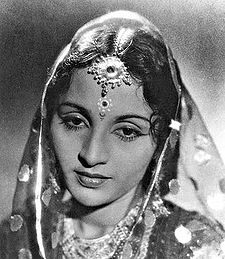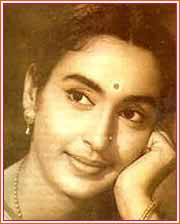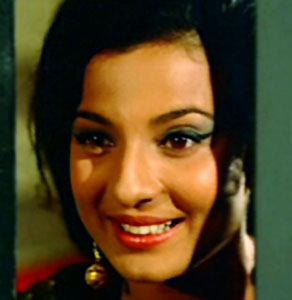Shobhna Samarth Biography
FOR TODAY’S generation, she’s known as the mother of legendary actresses Nutan and Tanuja and the grandmother of Kajol but Shobhana Samarth is undoubtedly a legend in her own right. Born in Bombay, Samarth began her acting career with the accomplished actor Master Vinayak (‘Nigah-E-Nafrat’/1935). Initially, she did most herfilms with the Saagar Film Company but these films could not really bring out the true potential she possessed as an actress. Around this time, she also did movies like ‘Do Diwane’ and ‘Kokila’with the dashing and debonair star Motilal, with whom she went on (o form a close bonding for years to come. Her real break arrived with the release of ‘Bharat Milap’. A film that established her as the number one actress among mythological films. Samarth played the role of Sita which was accepted very well by the masses. Within a year’s time, Vijay Bhatt (director of ‘Bharal Milap’) repeated Shobhana once again in the same role for the film ‘Ram Rajya’, which remains one of the most successful mythological films till date.
FOR TODAY’S generation, she’s known as the mother of legendary actresses Nutan and Tanuja and the grandmother of Kajol but Shobhana Samarth is undoubtedly a legend in her own right. Born in Bombay, Samarth began her acting career with the accomplished actor Master Vinayak (‘Nigah-E-Nafrat’/1935). Initially, she did most herfilms with the Saagar Film Company but these films could not really bring out the true potential she possessed as an actress. Around this time, she also did movies like ‘Do Diwane’ and ‘Kokila’with the dashing and debonair star Motilal, with whom she went on (o form a close bonding for years to come. Her real break arrived with the release of ‘Bharat Milap’. A film that established her as the number one actress among mythological films. Samarth played the role of Sita which was accepted very well by the masses. Within a year’s time, Vijay Bhatt (director of ‘Bharal Milap’) repeated Shobhana once again in the same role for the film ‘Ram Rajya’, which remains one of the most successful mythological films till date.
With the recurrent success of both the films, Shobhana was now flooded with offers with mythology being the main theme. She made the most of it and continued to play the role of Sita along with her favourite co-star Prem Adib (who played her Ram in most of the movies). Shobhana’s image as Sita was now heavily imprinted in the minds of the masses. They began to idolize her. She symbolized the legendary queen, the Goddess. ‘Rambaan’, ‘Ram Vivah’ and a number of other films that followed cemented her image as a heavenly idol. An image which was hard to break, which also bound her screen identity to such an extent that it became difficult for the masses to accept her in any other role. The only major shift that the audience accepted her in was when Shobhana portrayed other mythological characters (other than Sita) in movies like ‘Nala Damayanti’, ‘Taramati’, ‘Urvashi’ and ‘Mallika’. She tried her hand at films like ‘Chhalia’, ‘Nai Umar Ki Nai F’asal’, ‘Do Choi’ and ‘Ek Bar Muskura Do’ which were a departure from her earlier mythology-centric films. But in these, she was limited to playing character roles rather than the lead. In 1950, the actress turned producer with ‘Hainan Bed’, a film through which she launched her elder daughter Nutan into the film world.After five years, she made another film ‘Chhabili’, a launch-pad for her second daughter, Tanuja.Last year, when Shobhana Samarth, at the age of 75-plus, was asked how much she was paid in her heydays, she replied, “The amount was in lakhs.” Well, that’s the kind of star-power she commanded even in those days. A few months later, the actress passed away peacefully in her bungalow in Khandala, where she had been living by herself for years.
Shobhna Samarth
Shobhna Samarth
Shobhna Samarth
Shobhna Samarth
Shobhna Samarth
Shobhna Samarth
Shobhna Samarth
Shobhna Samarth
Shobhna Samarth
Shobhna Samarth
Aasha Ke Jab Deep Bujhe - Mohammed Rafi, Dilip Kumar, Insaniyat Song
Mein Bandar Hoon Shahar Ka - Mohammed Rafi, Agha, Insaniyat Song











No comments:
Post a Comment